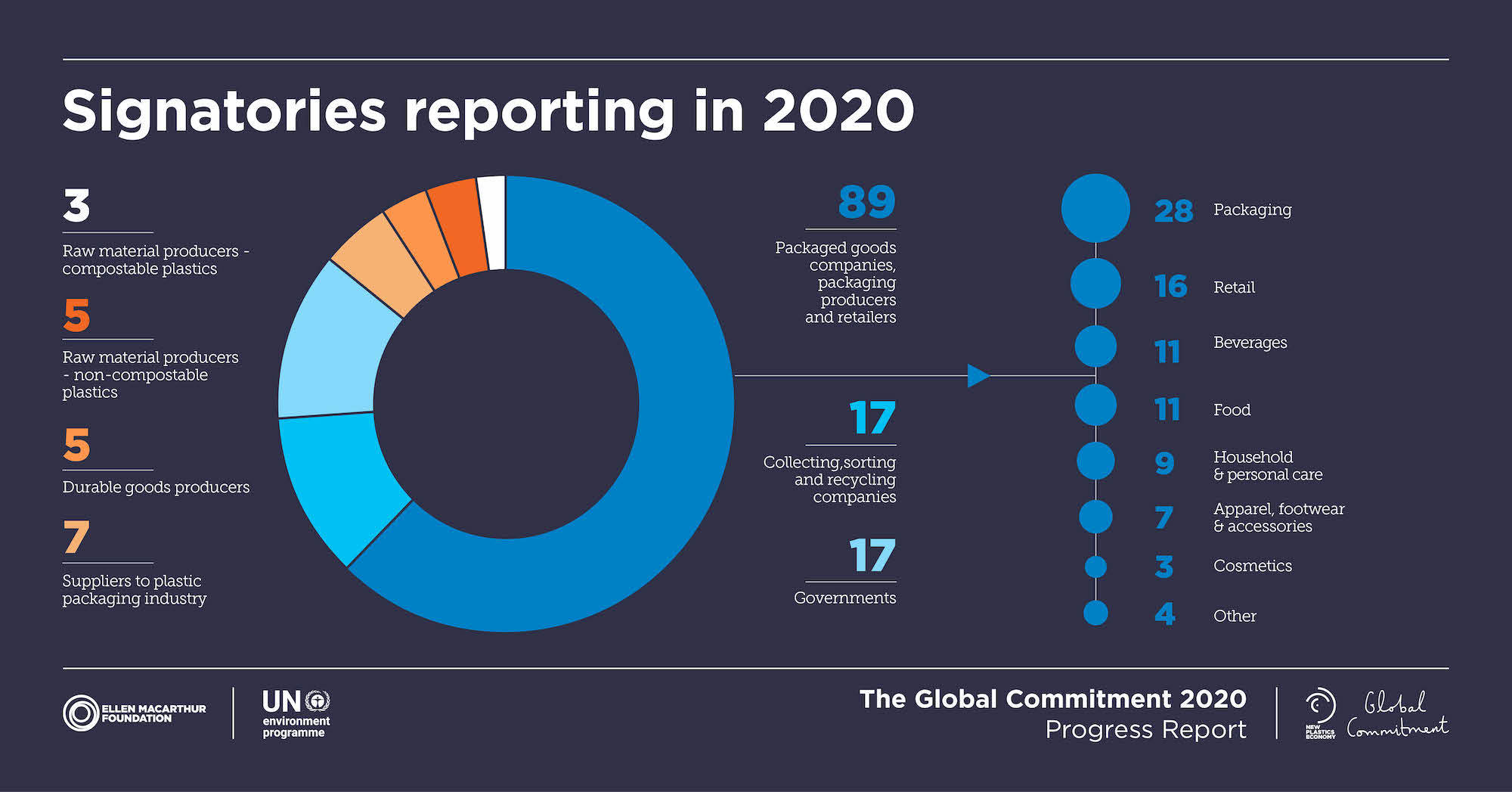This report is the second in a series of annual New Plastics Economy Global Commitment progress reports. It looks at how Global Commitment signatories, which together account for more than 20% of the plastic packaging market, are faring against their 2025 targets to tackle plastic pollution at its source. After a quantitative baseline was set by the first report in 2019, this 2020 report provides the first insight into the trajectory of progress against that baseline.
See all data by individual signatories here
In this report, 118 businesses that produce, use, and recycle large volumes of plastic packaging (representing 98% of the business signatories eligible to report through the Ellen MacArthur Foundation) and 17 governments across five continents (out of 20 government signatories) have reported on progress against public targets. They have all reported against a common set of commitments, using the same definitions, with the aim of driving transparency and consistency in data sharing on plastics across a significant group of businesses and governments.
This second Global Commitment progress report shows that the signatory group made progress in their first year after signing the Global Commitment, but a substantial acceleration of progress will be needed in the coming years to achieve the 2025 targets.
Significant advances have been made in two key areas: the incorporation of recycled content in plastic packaging, and the phase out of the most commonly identified problematic categories of plastic packaging, such as PS, PVC, undetectable carbon black, single-use plastic bags, and straws.
However, there has been limited progress on increasing recyclability of plastic packaging and on reducing the need for single-use packaging altogether: progress on shifting towards reusable packaging is limited, and elimination efforts remain focused on a relatively small set of materials and formats.
There are also significant differences in the rate of progress between signatories – while some have taken big steps forward, others have shown little to no progress against quantitative targets. We urge those signatories that have made limited progress this year to significantly increase their efforts to ensure they are on course to meet their 2025 commitments.
In response to these findings, and the latest peer-reviewed science, the Foundation and the UN Environment Programme make four calls to action in this report. These will be vital to deliver on 2025 targets, and achieve the broader system shift required.





